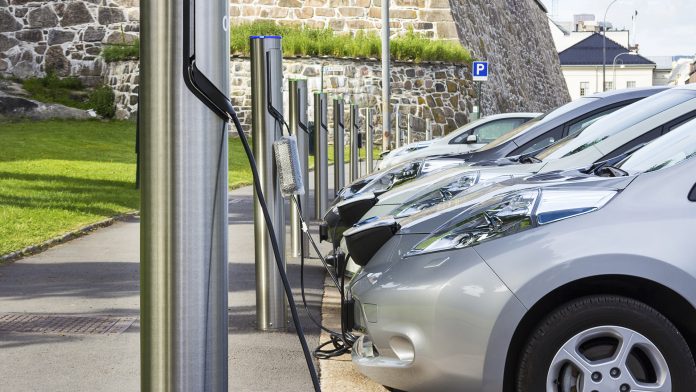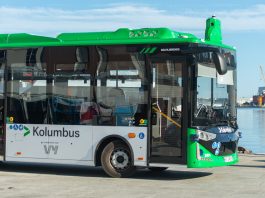Devin Arthur, Director of Government Relations at the EV Society, discusses Canada’s rapid progress in the electric vehicle industry, highlighting the importance of addressing affordability, infrastructure, and supply chain development to accelerate adoption.
When we cast our minds back to five years ago, the Canadian, and even global, electric vehicle (EV) industry was still in its infancy. Within this time, we have seen the development of holistic battery electric vehicle (BEV) supply chain, complete with billion-dollar investments, additional mineral processing, battery cell manufacturing, and reskill initiatives to support these sectors.
Everyone wants to own a car to enjoy the freedom of mobility and access. Consequently, with demand for personal vehicles continuing to rise, attention must turn to ensuring EVs present a viable alternative to existing vehicles.
In Canada, around 30-35% of all emissions are from personal transportation. Eliminating these emissions will rapidly accelerate decarbonisation, explaining Canada’s focus on electric vehicles and target of 100% EV sales by 2035.
Yet, if EVs are to meet sustainable goals, the supply chain as a whole must become less wasteful. Action must be taken to establish a circular economy that maximises the use of resources and guarantees the continued ability to meet future demand.
Recently, the concept of a global battery passport, aiming to track the emissions produced across the battery supply chain, has been proposed. Introducing standards and regulations such as this will enable companies and the industry as a whole to be held accountable and ensure batteries are manufactured with low-impact and sustainable methods.
Barriers to EV adoption
This is not to say that EV adoption is not without issue. In North America, one of the largest barriers to adoption is affordability.
Many of the EV models currently on the market are large and, therefore, expensive, pricing them out of the average income range without financial incentives.
There is a balance to be struck with industry in providing these incentives or considering ways to increase supply volumes of more affordable options in order to bring prices down.
Improving EV infrastructure
As the adoption of EVs takes hold, the associated infrastructure must improve and, equally, expand. The major metropolitan areas are mostly equipped with some form of charging infrastructure, whether at home, curbside, or gas stations.

But with the increase in EV adoption, the next phase of expansion must provide rural infrastructure for those who want to drive longer distances. In Canada especially, there is a vast expanse of rural geography in the North with little other than highways.
Therefore, infrastructure must be expanded in those areas, and its reliability must be improved to increase consumers’ confidence that an EV can fulfil their needs.
Canada’s potential to establish a supply chain
The recent Bloomberg NEF report highlighting Canada as the most sought-after place to establish a supply chain illustrates the potential of dedicated attention. There is a nationwide understanding of what is required for the EV industry to succeed.
At every level, federal, provincial, and municipal governments have collaborated to provide companies with a robust supply chain, skilled workers, and an open line of communication.
Work of the EV Society
The EV Society is an integral part of this communication. Acting in both a consumer-facing capacity and participating in regulatory meetings, the society acts as an intermediary between industry, policymakers, and end-users, advocating for the uptake and improvement of EVs.
The society has recently worked with the federal government on an industry working group for the EV ecosystem. This aims to consider how Canada can meet that 2035 target and strive for equitable access, accounting for affordability, rural infrastructure, and complicated urban infrastructure (e.g., for those living in apartments or unable to charge at home).
Regular involvement in the consultations and regulatory meetings enables us to advocate on behalf of the consumer and communicate their concerns. Information is critical to increasing the adoption of EVs. The society fosters more informed decision-making by promoting the benefits and dispelling the myths surrounding electric vehicles through regular webinars.
It also provides a platform connecting potential buyers to existing EV drivers in the community, building connections and consumer confidence.
The EV Society in Sudbury is in a unique spot with an established mining industry that is over 100 years old. There is a huge level of mining knowledge and experience in the area, surrounded by extraction and processing. The local community consistently exceeds average EV adoption, recently passing 1,000 EVs on the road – a considerable achievement for a community of 185,000. Sudbury is a prime example of how engagement and awareness are critical for the uptake of EVs and is now making the connection that EV sales directly impact the local economy.
Canada and the rest of the world must continue to encourage and support the significant economic and environmental potential electric vehicles offer. Globally, if we are to meet green targets, we cannot afford to lose momentum in the adoption of EVs. The work must now be directed into logistics, infrastructure, and equal access. Governments, companies, and the general population alike must be assured that the future of transportation still lies in electricity.
Please note, this article will also appear in the seventeenth edition of our quarterly publication.









